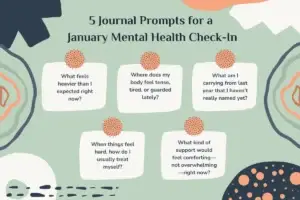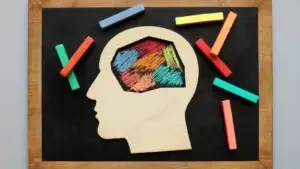In today’s fast-paced world, anxiety has become a prevalent issue affecting millions worldwide. Fortunately, there are various therapeutic approaches aimed at alleviating its debilitating effects. From traditional talk therapy to innovative techniques grounded in mindfulness and cognitive-behavioral principles, the landscape of anxiety therapy is rich and diverse. In this blog post, we delve into the intricacies of anxiety therapy, exploring the different approaches therapists utilize to help individuals manage and overcome their anxiety. Whether you’re someone grappling with anxiety yourself or a loved one seeking to understand how to support someone dealing with it, this comprehensive guide aims to shed light on the myriad of therapeutic options available. Join us as we navigate through the labyrinth of anxiety therapy approaches, providing insights, anecdotes, and expert opinions to help you gain a deeper understanding of how to tackle anxiety and reclaim a sense of calm and control in your life.
Exposure Therapy: Confronting Anxiety’s Challenges Head-On
Anxiety, with its gripping fear and paralyzing worry, often thrives in the shadows of avoidance. Yet, within the core of exposure therapy lies a potent antidote—a courageous confrontation of anxiety’s challenges head-on. In this exploration, we delve into the transformative power of exposure therapy, unraveling its principles, techniques, and profound impact on individuals seeking liberation from the shackles of anxiety.
The Process of Desensitization
Central to exposure therapy is the concept of desensitization—the gradual reduction in anxiety response through repeated exposure. Initially, exposures may induce intense anxiety, but with repetition and practice, the fear response diminishes. This process allows individuals to regain a sense of control over previously anxiety-provoking stimuli, leading to increased confidence and resilience.
Types of Exposure
Exposure therapy encompasses various approaches tailored to the unique needs of each individual. These may include in vivo exposure, where individuals directly confront feared situations or objects, or imaginal exposure, where they vividly imagine anxiety-provoking scenarios. Virtual reality exposure has also emerged as a powerful tool, providing realistic simulations of feared situations in a safe environment.
Overcoming Avoidance Behaviors
Avoidance behaviors serve as a temporary refuge from anxiety but perpetuate its cycle in the long run. Exposure therapy targets these avoidance patterns, encouraging individuals to confront feared stimuli gradually. By breaking the cycle of avoidance, individuals reclaim agency over their lives and develop adaptive coping strategies to manage anxiety more effectively.
Building Resilience through Mastery
As individuals engage in exposure exercises and witness their ability to confront fears, they experience a profound sense of mastery. This newfound confidence extends beyond specific anxiety triggers, permeating various aspects of their lives. Through repeated exposure and mastery experiences, individuals cultivate resilience, enabling them to navigate future challenges with greater ease.
Addressing Cognitive Distortions
Anxiety often accompanies distorted perceptions of threat and danger. Exposure therapy provides an opportunity to challenge these cognitive distortions directly. By exposing individuals to feared stimuli in a safe context, they can recalibrate their perceptions and develop a more balanced perspective, reducing the intensity of anxiety responses.
Mindfulness Meditation: Cultivating Calm Amidst Anxiety
Amidst the tumultuous waves of anxiety, mindfulness meditation emerges as a beacon of serenity, offering a sanctuary of calm within the chaos. In this exploration, we uncover the transformative power of mindfulness meditation in soothing anxious minds and nurturing inner peace.
- Foundations of Mindfulness: Explore the essence of mindfulness meditation, rooted in present-moment awareness and non-judgmental acceptance. Learn how this practice cultivates a peaceful relationship with thoughts and emotions, empowering individuals to navigate anxiety with grace.
- Breath as Anchor: Discover the breath as a steadfast anchor in the practice of mindfulness meditation. Through gentle attention to the breath, individuals can ground themselves in the present moment, fostering a sense of stability and tranquility amidst anxious thoughts and sensations.
- Witnessing Thoughts and Emotions: Mindfulness meditation invites individuals to observe thoughts and emotions with curiosity and compassion, rather than getting entangled in them. By cultivating this spacious awareness, individuals can develop a sense of detachment from anxious thoughts, freeing themselves from their grip.
- Body Scan Practice: Explore the body scan meditation, a practice that involves systematically bringing awareness to different parts of the body. This practice promotes relaxation, reduces physical tension, and enhances somatic awareness, offering relief from the physiological symptoms of anxiety.
Holistic Approaches to Anxiety: Integrating Mind, Body, and Spirit
In the intricate tapestry of human experience, anxiety often manifests as a discordant thread, weaving its way through the realms of mind, body, and spirit. Holistic approaches to anxiety recognize this interconnectedness, offering a comprehensive framework that nurtures healing and harmony on all levels. Join us on a journey as we explore the profound integration of mind, body, and spirit in holistic approaches to anxiety, uncovering practices that honor the entirety of the human experience.
Mind-Body Practices
Mind-body practices, such as yoga, tai chi, and qigong, serve as potent vehicles for cultivating awareness and promoting relaxation. Through mindful movement, breathwork, and meditation, individuals can soothe the nervous system, alleviate tension, and cultivate a greater sense of inner peace, offering respite from the grip of anxiety.
Nutrition and Gut Health
The gut-brain connection is a cornerstone of holistic approaches to anxiety, as emerging research highlights the profound influence of gut health on mental well-being. By nourishing the body with wholesome foods rich in nutrients and supporting gut microbiota through probiotics and prebiotics, individuals can optimize their mental health and reduce anxiety symptoms.
Herbal Remedies and Supplements
Herbal remedies and supplements offer natural support for anxiety, harnessing the healing properties of plants to restore balance to the body and mind. Botanicals such as lavender, chamomile, and passionflower are renowned for their calming effects, while adaptogenic herbs like ashwagandha and rhodiola help the body adapt to stressors more effectively.
Energy Healing Modalities
Energy healing modalities, including acupuncture, Reiki, and crystal therapy, work on the premise that imbalances in the body’s energy systems contribute to anxiety and other health concerns. By clearing energetic blockages and restoring flow, these practices promote relaxation, balance, and a sense of wholeness, fostering healing on a profound level.
Psycho-Spiritual Integration
Holistic approaches to anxiety acknowledge the spiritual dimension of human experience, recognizing that inner peace and fulfillment are intertwined with a sense of purpose and connection to something greater than oneself. Practices such as meditation, prayer, and mindfulness facilitate a deeper connection to the inner self and the divine, offering solace and guidance in times of distress.
Conclusion
Understanding the different approaches to anxiety therapy is crucial for individuals seeking help in managing their symptoms and improving their overall well-being. Whether it’s cognitive-behavioral therapy, mindfulness-based therapy, or medication management, each approach offers unique benefits tailored to the individual’s needs. By exploring these options and working closely with a qualified therapist, individuals can find the most effective strategies for addressing their anxiety and moving towards a renewed sense of wellness.
If you’re in North Carolina and ready to take the first step towards managing your anxiety, don’t hesitate to reach out to Renewed Wellness Counseling, PLLC. Our team of experienced therapists is dedicated to providing personalized and compassionate care to help you navigate your journey towards mental wellness. Contact us today at 252-505-8150 to schedule an appointment and begin your path towards renewed vitality and peace of mind.








